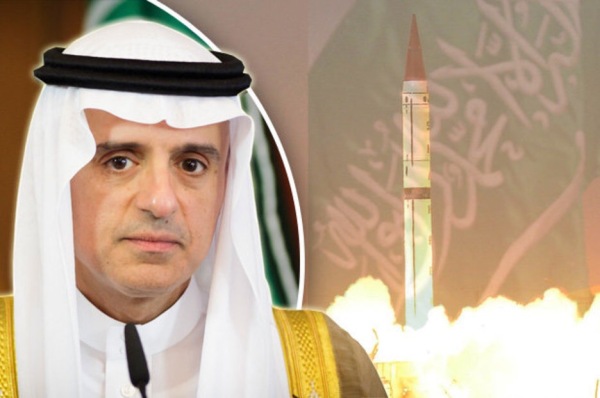
Why Saudi Arabia is doubling down on its nuclear program
Tom Rogan
Oct 30, 2017, 3:53 PM
Counterbalancing Iran, Saudi Arabia is doubling down on its nuclear program.
That's my analysis of the Saudi statement Monday that it will commence uranium extraction efforts towards nuclear "self-sufficiency." While it's not clear if Saudi Arabia intends to enrich any uranium, its statement is notable nevertheless. For a start, recognizing U.S. concerns in relation to nuclear proliferation, Saudi Arabia has traditionally been hesitant in its nuclear development strategy.
What has changed? Iran's nuclear program.
Under the direction of Crown Prince Mohammed bin Salman, Saudi Arabia has adopted an increasingly aggressive strategy toward Iran. While this dynamic is most evident in the Saudi intervention to counter Iranian influence in Yemen, it follows that bin-Salman would want to ensure parity with Iran in every possible sector, including nuclear.
Still, Saudi Arabia's nuclear strategy is also focused on domestic interests.
First, by diversifying its energy sector away from oil, Saudi Arabia ensures its long term energy security. Second, Saudi Arabia signals to its population and the world that big changes are coming.
That latter point is crucial.
After all, since its inception, the House of Saud has governed in a remarkably sustaining fashion. At home, in return for their recognition of the royal family, Wahhabi clerics have been granted supreme social and cultural power. And abroad, since the end of World War II, Saudi Arabia has sold oil in return for American guarantees of security.
Now, however, the crown prince is determined to alter the status quo by moving towards a westernized model of greater individual freedom and economic diversification. As he undertakes these reforms, bin Salman seems to believe his regime's security requires an independent nuclear program. And while the Saudis are unlikely to weaponize their nuclear program unless and until they view Iran as committed to that same course, the kingdom has an ace card up its sleeve: Pakistan.
Having supported Pakistan with tens of billions of dollars over the decades, the Saudis are convinced that the Pakistani government would, on request, transfer nuclear weapons technology to Riyadh. That gives bin Salman confidence that he has time on his side to first develop a purely peaceful nuclear program.
Ultimately, this development is just another reminder as to why the U.S. has an indispensable role in the Middle East. Absent the influencing mix of our deterrent and diplomatic power, the great game of Iranian vs. Saudi sectarian power politics escalates unhindered. And if that game ever goes nuclear, it will be too late for all of us.
No comments:
Post a Comment